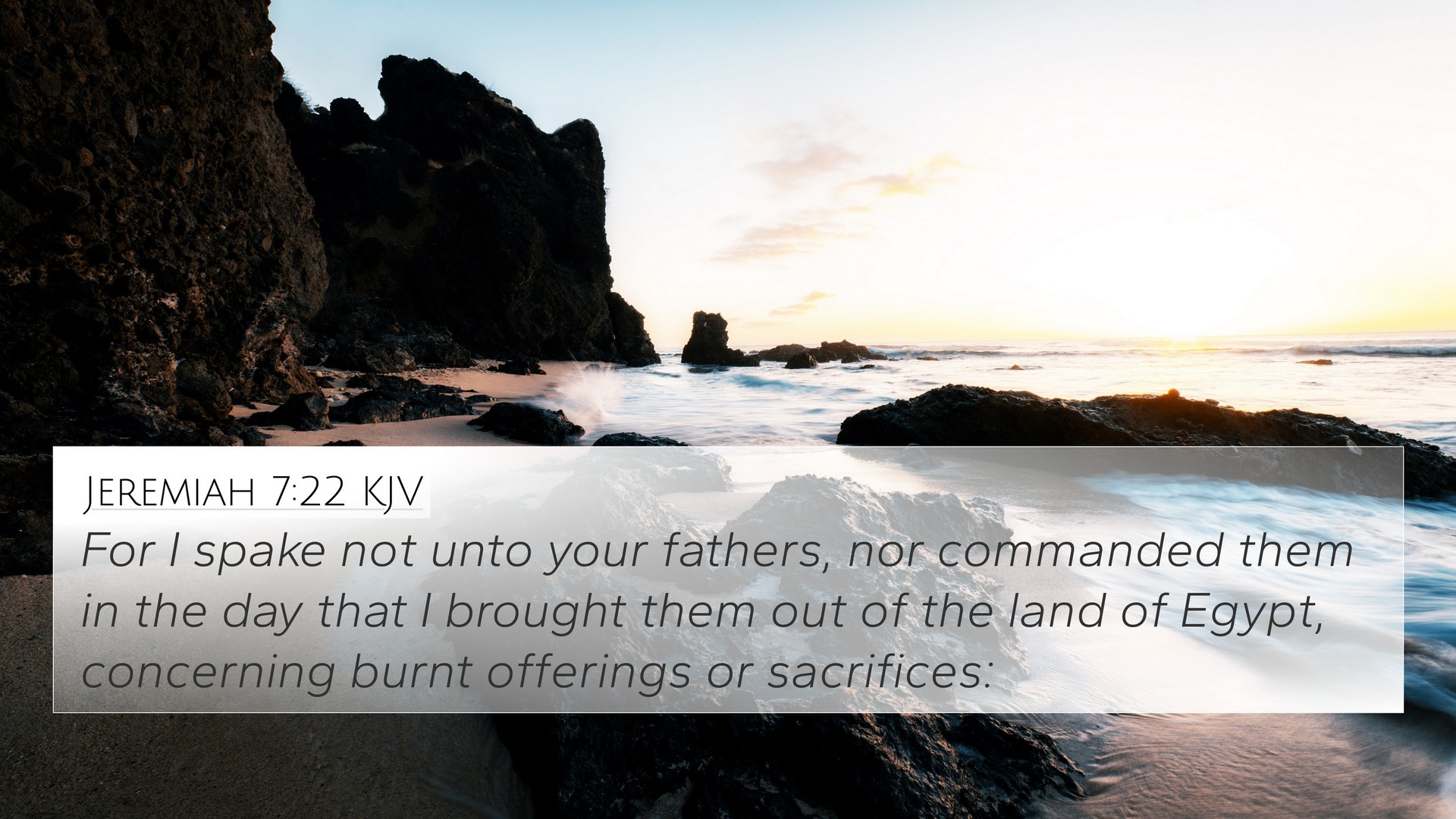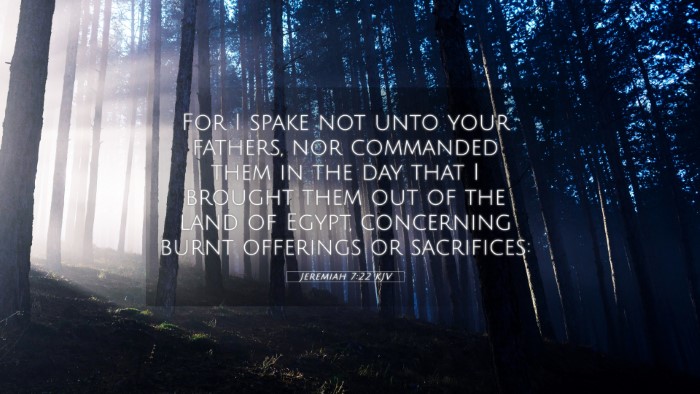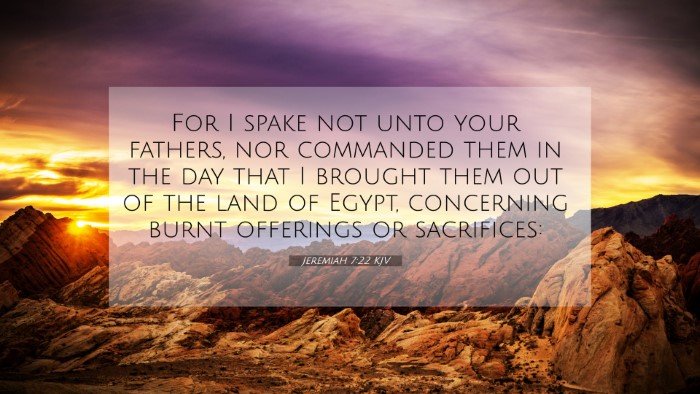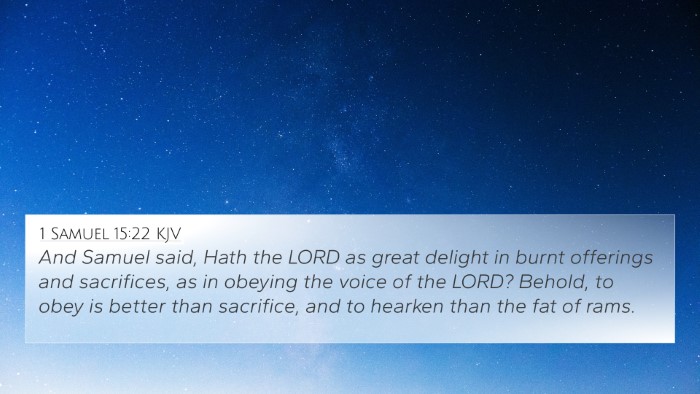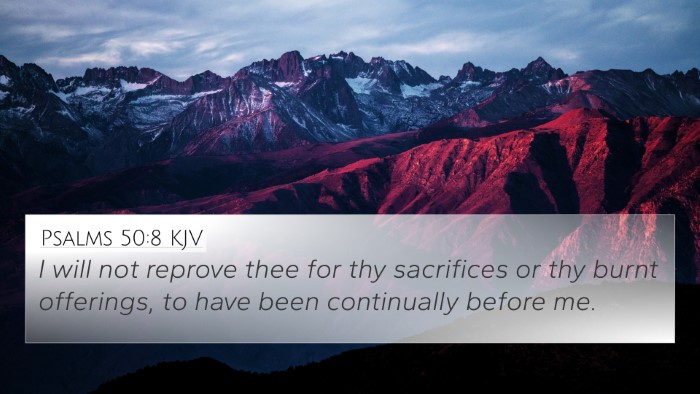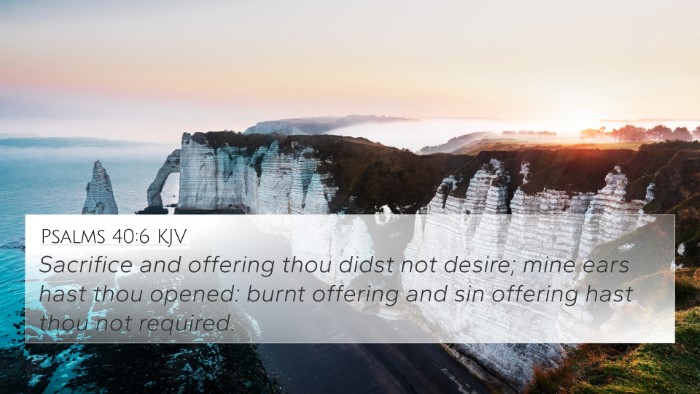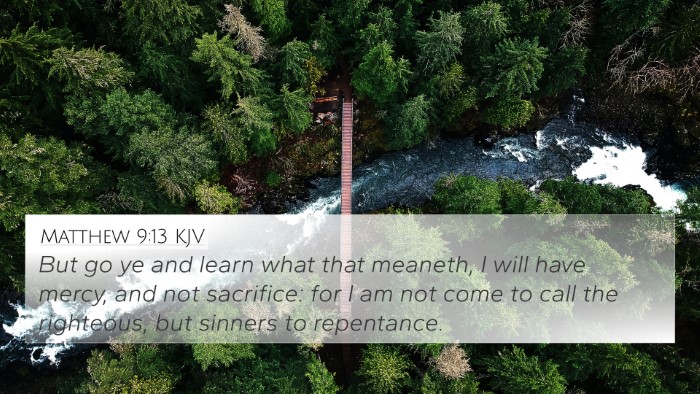Understanding Jeremiah 7:22
Jeremiah 7:22 states: "For I spake not unto your fathers, nor commanded them in the day that I brought them out of the land of Egypt, concerning burnt offerings or sacrifices."
Context and Significance
This verse appears within a larger discourse where the prophet Jeremiah addresses the people of Judah. He emphasizes that God's primary concern was not with ritual sacrifices but with obedience and a sincere relationship with Him.
Commentary Insights
-
Matthew Henry:
Henry explains that God was more interested in the people's hearts and their moral conduct than in their ceremonial observances. The implication is clear: mere rituals without heartfelt obedience are of no value to God.
-
Albert Barnes:
Barnes underlines the historical context in which God, while delivering the Israelites from Egypt, did not institute sacrifices as a condition for their deliverance. Instead, He sought a covenant relationship based on love and fidelity.
-
Adam Clarke:
Clarke emphasizes that although sacrifices were a part of the law, they were not the essence of the divine command given at Sinai. The true command is about living justly and repenting of sin rather than mere ritual compliance.
Thematic Connections in Scripture
This verse prompts a rich exploration of thematic connections across the Bible. Here are several relevant cross-references:
- Hosea 6:6: "For I desire mercy, not sacrifice, and acknowledgment of God rather than burnt offerings." This reinforces that God prefers a relationship marked by love and mercy over ritualistic observance.
- Micah 6:6-8: "With what shall I come before the LORD... He has shown you, O mortal, what is good..." This passage highlights how God desires justice, mercy, and humility over empty rituals.
- Isaiah 1:11-17: In this text, God expresses His disdain for empty sacrifices and urges the people to seek justice and care for the marginalized.
- Psalms 51:16-17: "You do not delight in sacrifice, or I would bring it; you do not take pleasure in burnt offerings. My sacrifice, O God, is a broken spirit..." This is a direct connection to the essence of God's desire for genuine repentance.
- Romans 12:1: "Therefore, I urge you, brothers and sisters, in view of God’s mercy, to offer your bodies as a living sacrifice, holy and pleasing to God—this is your true and proper worship." The New Testament reiterates the call for genuine life sacrifice over ritual.
- Proverbs 21:3: "To do what is right and just is more acceptable to the LORD than sacrifice." This verse further reinforces the biblical theme of justice over ritual.
- John 4:24: "God is spirit, and his worshipers must worship in the Spirit and in truth." This emphasizes the necessity of sincerity in worship, echoing Jeremiah's message.
Methods for Cross-Referencing Bible Verses
Understanding the broader context of Jeremiah 7:22 can be enriched by utilizing tools for Bible cross-referencing such as:
-
Bible Concordance: A comprehensive index that allows readers to locate verses based on keywords and themes.
-
Bible Cross-Reference Guide: These guides provide thematic connections between verses, helping to identify relationships and contextual similarities.
-
Cross-Referencing Bible Study: This method involves analyzing various scriptures in light of one another to gain deeper insights.
-
How to Use Bible Cross-References: Learning how to navigate cross-references can help in sermon preparation and personal study, allowing for a layered understanding of scripture.
Conclusion
Jeremiah 7:22 serves as a poignant reminder of God's desire for genuine worship and obedience. As we study it in light of related scriptures, we uncover a consistent biblical theme that places emphasis on the heart rather than mere ritual. Tools for cross-referencing can greatly enhance our understanding and appreciation of these connections, guiding our journey through the scriptures with clearer insights into God's character and expectations.
